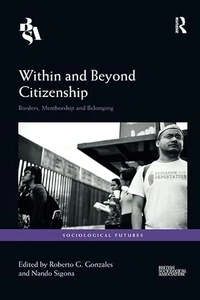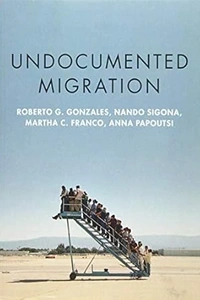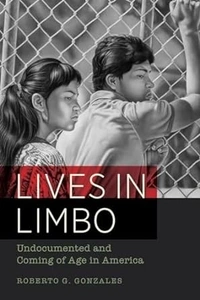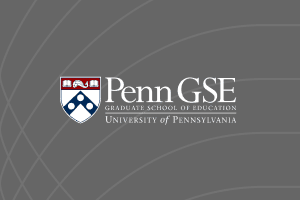Biography
Roberto G. Gonzales is the Richard Perry University Professor at the University of Pennsylvania, with appointments in the Department of Sociology and the Graduate School of Education. His research focuses on factors that both shape and reduce economic, legal, and social inequalities among vulnerable and hard-to-reach youth populations as they transition to adulthood. Professor Gonzales’s work has been featured in top journals, including the American Sociological Review, Annual Review of Sociology, and Current Anthropology. His published research has been widely cited and has garnered awards from multiple disciplines, including sociology, anthropology, and psychology, as well as from education, law, and social work. He is an active public scholar and has advised a broad range of stakeholders in the private and public sectors, has briefed members of the U.S. Congress, and has testified on matters of immigration policy before the U.S. Senate. He has also written opinion pieces for The New York Times, Washington Post, Boston Globe, and The Guardian and is often quoted in the popular media.
At Penn, Professor Gonzales is the founding director of the newly formed Penn Migration Initiative, a university-wide effort aimed at advancing and promoting interdisciplinary scholarship and intellectual exchange around issues of immigration policy and immigrant communities. He currently serves as Convenor of the Ethnography in Education Research Forum. Prior to his appointment at Penn, Professor Gonzales held faculty positions at Harvard University, the University of Chicago, and the University of Washington. His research has been supported by the John D. and Catherine T. MacArthur Foundation, the Bill & Melinda Gates Foundation, the William T. Grant Foundation, the Spencer Foundation, the James Irvine Foundation, and the Heising-Simons Foundation.
Education
- Ph.D. (Sociology) University of California, Irvine, 2008
- M.A. (Sociology) University of California, Irvine, 2004
- A.M. (Social Welfare) University of Chicago, School of Social Service Administration, 1999
- B.A. (Sociology) The Colorado College, 1992
Areas of Expertise
- Immigrant incorporation
- Immigrants and education
- Immigration policy
- Urban education
- Transition to adulthood
- Sociology of education
Academic Programs
Research Interests and Current Projects
Since 2002 Professor Gonzales has carried out one of the most comprehensive studies of undocumented immigrants in the United States. His landmark book, Lives in Limbo: Undocumented and Coming of Age in America, is based on an in-depth study that followed 150 undocumented young adults in Los Angeles for twelve years. Lives in Limbo has won eight major book awards, including the C. Wright Mills Award given by the Society for the Study of Social Problems and the American Educational Research Association Outstanding Book Award. It has also been selected by a number of universities as a common read text and has been used by several dozen school districts and community institutions to train staff. The book was recently optioned for theatrical production. In addition to Lives in Limbo, Professor Gonzales’s other books include Within and Beyond Citizenship: Borders, Membership, and Belonging, and Undocumented Migration.
In addition, Professor Gonzales’s seven-year longitudinal National UnDACAmented Research Project has surveyed nearly 2,700 undocumented young adults and has carried out 500 in-depth interviews on their experiences following President Obama’s Deferred Action for Childhood Arrivals (DACA) program. He is also collaborating with several colleagues to investigate educator responses to school climate issues stemming from immigration policies.
Recent projects include:
- Educator Responses to Immigration Policies and Practices: Supporting Immigrant Students in a Changing Policy Environment, William T. Grant Foundation (2019–2022). This project is guided by the following overarching research question: How are educators in schools across the United States responding to recent immigration policies and anti-immigrant discourse in varying contexts of reception? Given the inequalities faced by immigrant communities across the United States, we seek to understand which strategies educators draw on to support immigrant youth in the current and shifting policy context.
- From Undocumented to DACAmented: Understanding DACA Beneficiaries in a New Policy Context, John D. and Catherine T. MacArthur Foundation (2013–2019). This multi-sited, longitudinal project aims to better understand how beneficiaries of the Deferred Action for Childhood Arrivals (DACA) program negotiate their uncertain immigration status during their own life course, amid local immigration contexts and in light of changing political climates. In late 2013 to early 2014 we carried out a national survey, reaching 2,864 DACA-eligible young adults. In 2015 we conducted a first wave of face-to-face, in-depth qualitative interviews with 481 DACA-eligible young adults in Arizona, California, Georgia, New York, Illinois, and South Carolina. We carried out subsequent interviews with these respondents in 2016 and 2019.






